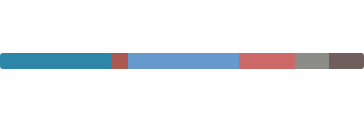https://github.com/spencermountain/spacetime
A lightweight javascript timezone library
https://github.com/spencermountain/spacetime
date-formatting daylight-savings time-formatting timezone timezone-conversion timezones
Last synced: 10 months ago
JSON representation
A lightweight javascript timezone library
- Host: GitHub
- URL: https://github.com/spencermountain/spacetime
- Owner: spencermountain
- License: other
- Created: 2017-02-22T15:31:34.000Z (about 9 years ago)
- Default Branch: master
- Last Pushed: 2025-05-12T13:13:08.000Z (10 months ago)
- Last Synced: 2025-05-14T09:03:50.707Z (10 months ago)
- Topics: date-formatting, daylight-savings, time-formatting, timezone, timezone-conversion, timezones
- Language: JavaScript
- Homepage: http://spacetime.how/
- Size: 6.88 MB
- Stars: 4,066
- Watchers: 27
- Forks: 190
- Open Issues: 21
-
Metadata Files:
- Readme: README.md
- Changelog: changelog.md
- Contributing: contributing.md
- License: LICENSE
Awesome Lists containing this project
- awesome-github-star - spacetime
- awesome-github-repos - spencermountain/spacetime - A lightweight javascript timezone library (JavaScript)
- my-awesome-list - spacetime
README

Isn't it weird how we can do math in our head, but not date math?
 - how many days until the end of the year?
- how many days until the end of the year?
 -what time was it, 11 hours ago?
-what time was it, 11 hours ago?
 -is it lunchtime in france?
-is it lunchtime in france?

and worse - there is no real **_date calculator_**.
people end up asking google, and going to weird websites.

that's bad.

spacetime is a date-calculator,
 It's very small, and very handy.
It's very small, and very handy.
```js
let s = spacetime.now()
s.diff(s.endOf('year'), 'days')
// 292
s.substract(11, 'hours').time()
// 6:50am
s = s.goto('Europe/Paris')
s.isAfter(s.time('11:00am'))
// true 🥐
```



- calculate time in remote timezones
- support **daylight savings**, **leap years**, and **hemispheres**
- [Moment-like API](https://beta.observablehq.com/@spencermountain/spacetime-api) _(but immutable)_
- Orient time by quarter, season, month, week..
- _Zero Dependencies_ - (no _[Intl API](https://developer.mozilla.org/en-US/docs/Web/JavaScript/Reference/Global_Objects/Intl)_)
- weighs about 40kb.
- has a cool _[plugin thing](https://observablehq.com/@spencermountain/spacetime)_.
- frequent updates for approaching DST changes
- support for upcoming [Temporal](https://tc39.es/proposal-temporal/docs/) standards

```html
var d = spacetime('March 1 2012', 'America/New_York')
//set the time
d = d.time('4:20pm')
d = d.goto('America/Los_Angeles')
d.time()
//'1:20pm'
```

`npm install spacetime`
```js
const spacetime = require('spacetime')
let d = spacetime.now('Europe/Paris')
d.dayName()
//'Wednesday'
d.isAsleep()
//true
```
typescript / babel / deno:
```ts
import spacetime from 'spacetime'
let d = spacetime.now()
d.format('nice')
//'Apr 1st, 4:32pm'
```


plugins:

### Date Inputs:
we can parse _[all the normal stuff](https://github.com/spencermountain/spacetime/wiki/Input)_, and some fancy stuff:
```js
//epoch
s = spacetime(1489520157124)
//array [yyyy, m, d] (zero-based months, 1-based days)
s = spacetime([2017, 5, 2])
//iso
s = spacetime('July 2, 2017 5:01:00')
// All inputs accept a timezone, as 2nd param:
s = spacetime(1489520157124, 'Canada/Pacific')
s = spacetime('2019/05/15', 'Canada/Pacific')
// or set the offset right in the date-string (ISO-8601)
s = spacetime('2017-04-03T08:00:00-0700')
// 'Etc/GMT-7'
// Some helpers
s = spacetime.now()
s = spacetime.today() // This morning
s = spacetime.tomorrow() // Tomorrow morning
s = spacetime.min() // the earliest-possible date (271,821 bc)
s = spacetime.max() // the furthest-possible future date (27k years from now)
// To get the native Date object back
// (this bails back to the local timezone)
jsDate = spacetimeDate.toNativeDate()
```
for fancier natural-language inputs, use [compromise-dates](https://github.com/spencermountain/compromise/tree/master/plugins/dates).

### Get & Set dates:
you can whip things around, but stay intuitive
```js
s.date() // 14
s.year() // 2017
s.season() // Spring
s = s.hour(5) // Change to 5am
s = s.date(15) // Change to the 15th
s = s.day('monday') // Change to (this week's) monday
s = s.day('monday', true) // go forward to monday
s = s.day('monday', false) // go backward to monday
s = s.month('march') // Change to (this year's) March 1st
s = s.quarter(2) // Change to April 1st
s.era() // 'BC'/'AD'
s.decade() // 2000
s.century() // 21
// Percentage-based information
s.progress().month = 0.23 // We're a quarter way through the month
s.progress().day = 0.48 // Almost noon
s.progress().hour = 0.99 // 59 minutes and 59 seconds
// Add/subtract methods
s = s.add(1, 'week')
s = s.add(3, 'quarters')
s = s.subtract(2, 'months').add(1, 'day')
// start-of/end-of
s = s.startOf('day') // 12:00am
s = s.startOf('month') // 12:00am, April 1st
s = s.endOf('quarter') // 11:59:59pm, June 30th
s = s.nearest('hour') //round up/down to the hour
s = s.nearest('quarter-hour') //5:15, 5:30, 5:45..
s = s.next('month') //start of the next month
s = s.last('year') //start of the last year
// fill-in all dates between a range
s.every('week', 'Jan 1st 2020') // (in tz of starting-date)
//utilities:
s.clone() // Make a copy
s.isValid() // Sept 32nd → false
s.isAwake() // it's between 8am → 10pm
s.json() // get values in every unit as key-val object
```
if it's **_9am on tuesday_**, and you add a week, it will still be 9am on tuesday.
... even if some crazy changes happen.
setter methods also support a handy 2nd param that controls whether it should be set forward, or backward.
```js
s = s.time('4:00pm') // 4pm today
s = s.time('4:00pm', true) // the next 4pm in the future
s = s.time('4:00pm', false) // the most-recent 4pm
s = s.set('march 5th 2020')
s = s.set('march 4th') // 2020 (same year)
s = s.set('march 4th', true) // 2021
s = s.set('march 6th', false) // 2019
```
it's actually a little surprising how helpful this is.

### Comparisons:
```js
let s = spacetime([2017, 5, 2])
let start = s.subtract(1, 'milliseconds')
let end = s.add(1, 'milliseconds')
// gt/lt/equals
s.isAfter(d) // True
s.isEqual(d) // False
s.isBefore(d) // False
s.isBetween(start, end, inclusive?) // True
// Comparison by unit
s.isSame(d, 'year') // True
s.isSame(d, 'date') // False
s.diff(d, 'day') // 5
s.diff(d, 'month') // 0
//make a human-readable diff
let before = spacetime([2018, 3, 28])
let now = spacetime([2017, 3, 28]) //one year later
now.since(before)
// {diff: { months: 11, days: 30, ...}, rounded: 'in 12 months' }
```
all comparisons are done with sensitivity of timezone - **_8am EST_** is < **_8am PST_**.

### Timezones:
the best way to describe a timezone is an [IANA code](https://en.wikipedia.org/wiki/List_of_tz_database_time_zones):
```js
// Roll into a new timezone, at the same moment
s = s.goto('Australia/Brisbane')
```
if you want to support relaxed timezone names like `'EST'`, `Eastern time`, use [timezone-soft](https://github.com/spencermountain/timezone-soft/)
```js
spacetime.extend(require('timezone-soft'))
s = s.goto('milwaukee') // 'America/Chicago'
s = s.goto('-7h') // UTC-7
s = s.goto('GMT+8') // -8h!
// (these should be used with some caution)
```
play-around with timezones, and their DST-changes:
```js
//list timezones by their current time
spacetime.whereIts('8:30pm', '9:30pm') // ['America/Winnipeg', 'America/Yellowknife'... ]
spacetime.whereIts('9am') //(within this hour)
// Timezone metadata
s.timezone().name // 'Canada/Eastern' (either inferred or explicit)
s.hemisphere() // North
s.timezone().current.offset // -4 (in hours)
s.hasDST() // True
s.isDST() // True
//list all timezones
spacetime.timezones()
```
you can flip-around the world pretty quick.
spacetime will use your local timezone, by default:
`.goto(null)` will pluck your current tz safely from your browser or computer.
```js
spacetime().time('4:30pm').goto('Europe/Paris').goto(null).time()
// 4:30pm
```
If, for some reason, you want to change the timezone *without changing the date*, you can do this via the `.timezone(str)` setter:
```js
let s = spacetime('2023-01-01T5:30[America/Denver]')
s = s.timezone('Europe/Zagreb') // hot-swap
console.log(s.isoFull())
// '2023-01-01T05:30:00.000+01:00[Europe/Zagreb]' (same time, new tz)
```

### Date Formatting:
it's _[a pretty-sensible process](https://github.com/spencermountain/spacetime/wiki/Formatting)_ to create nice-looking dates:
```js
// Date + time formatting
s.format('time') // '5:01am'
s.format('numeric-uk') // 02/03/2017
s.format('month') // 'April'
s.format('month-short') // 'Apr'
s.format('month-pad') // '03'
s.format('iso-month') // '04'
//if you want more complex formats, use {}'s
s.format('{year}-{date-pad}-{month-pad}') // '2018-02-02'
s.format("{hour} o'clock") // '2 o'clock'
s.format('{time}{ampm} sharp') // '2:30pm sharp'
//if you prefer, you can also use unix-formatting
s.unixFmt('yyyy.MM.dd h:mm a') // '2017.Nov.16 11:34 AM'
// support for the new Temporal ISO format
s.format('iso-full') // '2011-12-03T10:15:30.010+01:00[Europe/Paris]'
// support for the SQL ISO 9075 format
s.format('sql') // '2011-12-03 10:15:30'
```


## Limitations & caveats
#### ◆ Historical timezone info
DST changes move around all the time, and timezones pop-in and out of existence.
We store and use only the latest DST information, and apply it to historical dates.
#### ◆ International date line
`.goto()` never crosses the date-line. This is mostly the intuitive behaviour.
But if you're in `Fiji` (just west of the date line), and you go to `Midway` (just east of the date line), .goto() will subtract a bunch of hours, instead of just adding one.
#### ◆ Destructive changes
if it's `2:30pm` and you add a month, it should still be `2:30pm`. Some changes are more destructive than others. Many of thse choices are subjective, but also sensible.
#### ◆ 0-based vs 1-based ...
for better or worse we copy the JavaScript spec for 0-based months, and 1-based dates.
ISO-formatting is different, so keep on your toes.
see [more considerations and gotchas](https://github.com/spencermountain/spacetime/wiki)
#### Daylight-savings gotchas
We've written in detail about how spacetime handles Daylight-savings changes [here](https://observablehq.com/@spencermountain/spacetime-daylight-savings-time?collection=@spencermountain/spacetime)
Fall DST changes have an hour that is repeated twice. There are a lot of tricky situations that come from this.
Add 10 minutes at `1:55am`, and a spacetime diff may show `-50mins`. Within an hour of this change, some spacetime methods may be off-by-one hour.
Springtime DST changes are generally smoother than Fall ones.


### Config:
#### Ambiguity warnings:
javascript dates use millisecond-epochs, instead of second-epochs, like some other languages.
This is a common bug, and spacetime can warn if you set an epoch within January 1970.
to enable:
```js
let s = spacetime(123456, 'UTC', {
silent: false
})
s.log() // "Jan 1st, 12:02am"
```
There is another situation where you may see a `console.warn` - if you give it a timezone, but then set a ISO-date string with a different offset, like `2017-04-03T08:00:00-0700` (-7hrs UTC offset).
It sets the timezone to UTC-7, but also gives a warning.
```js
let s = spacetime('2017-04-03T08:00:00-0700', 'Canada/Eastern', {
silent: false
})
s.timezone().name // "Etc/GMT-7"
```
#### Configure 'today' context:
spacetime makes some assumptions about some string inputs:
```js
// assumes start of month
let s = spacetime('June 1992')
s.date() // 1
// assumes current year
let s = spacetime('June 5th')
s.year() // 2020 (or whatever it is now)
// assumes Jan 1st
let s = spacetime('2030')
s.month() // 'January'
```
you can configure this assumed date (usually for testing) by passing it in as an option:
```js
let today = {
month: 3,
date: 4,
year: 1996
}
let s = spacetime('June 5th', null, { today: today })
s.year() // 1996
```
it also works for `spacetime.now(tz, {today:today})` and others.
#### Extending/Plugins:
you can throw any methods onto the Spacetime class you want, with `spacetime.extend()`:
```js
spacetime.extend({
isHappyHour: function () {
return this.hour() === 16
}
})
let s = spacetime.now('Australia/Adelaide')
s.isHappyHour()
//false
s = s.time('4:30pm')
s.isHappyHour()
//true
```
#### DD/MM/YYY interpretation:
by default spacetime uses the American interpretation of ambiguous date formats, like javascript does:
```js
spacetime('12/01/2018') //dec 1st
// unless it's clear (>12):
spacetime('13/01/2018') //jan 13th
```
you can change this behaviour by passing in a `dmy` option, like this:
```js
spacetime('12/01/2018', null, { dmy: true }) //jan 12th
```
this format is more common in [britain, and south america](https://en.wikipedia.org/wiki/Date_format_by_country).
#### Custom languages:
```js
let s = spacetime.now()
s.i18n({
days: {
long: ['domingo', 'lunes', 'martes', 'miércoles', 'jueves', 'viernes', 'sábado'],
short: ['dom', 'lun', 'mar', 'mié', 'jue', 'vie', 'sáb']
},
months: {
long: [...],
short: ['ene', 'feb', 'mar', 'abr', 'may', 'jun', 'jul', 'ago', 'sep', 'oct', 'nov', 'dic'],
},
ampm: {
am: ' a. m.',
pm: ' a. m.'
},
distance: {
past: 'past',
future: 'future',
present: 'present',
now: 'now',
almost: 'almost',
over: 'over',
pastDistance: (value) => `${value} ago`,
futureDistance: (value) => `in ${value}`
},
units: {
second: 'second',
seconds: 'seconds',
minute: 'minute',
minutes: 'minutes',
hour: 'hour',
hours: 'hours',
day: 'day',
days: 'seconds',
month: 'month',
months: 'months',
year: 'year',
years: 'years',
},
useTitleCase: true // automatically in .format()
});
s.format('day') //'Sábado'
```
#### Configure start of week:
by default, the start of the week is monday.
You can determine the week by the official country setting, with [spacetime-week](https://github.com/spencermountain/spacetime-week)
```js
let s = spacetime.now()
s = s.weekStart('sunday')
s = s.startOf('week')
s.dayName()
//sunday
s = s.endOf('week')
s.dayName()
//saturday
```


#### See also:
- [luxon](https://moment.github.io/luxon/) - a small library from the clever moment people
- [date-fns](https://date-fns.org/) - an battle-hardened client-side Date utility
- [sugarjs/dates](https://sugarjs.com/dates/) - well-made date fns + timezone math
- [Intl.DateTimeFormat](https://developer.mozilla.org/en-US/docs/Web/JavaScript/Reference/Global_Objects/DateTimeFormat) - some _[sorta-green](https://caniuse.com/#feat=internationalization)_ in-browser date utilities
- [BurntSushi/Jiff](https://github.com/BurntSushi/jiff) - Rust/wasm date library
thank you to the amazing [timeanddate.com](https://www.timeanddate.com/)
Apache 2.0


